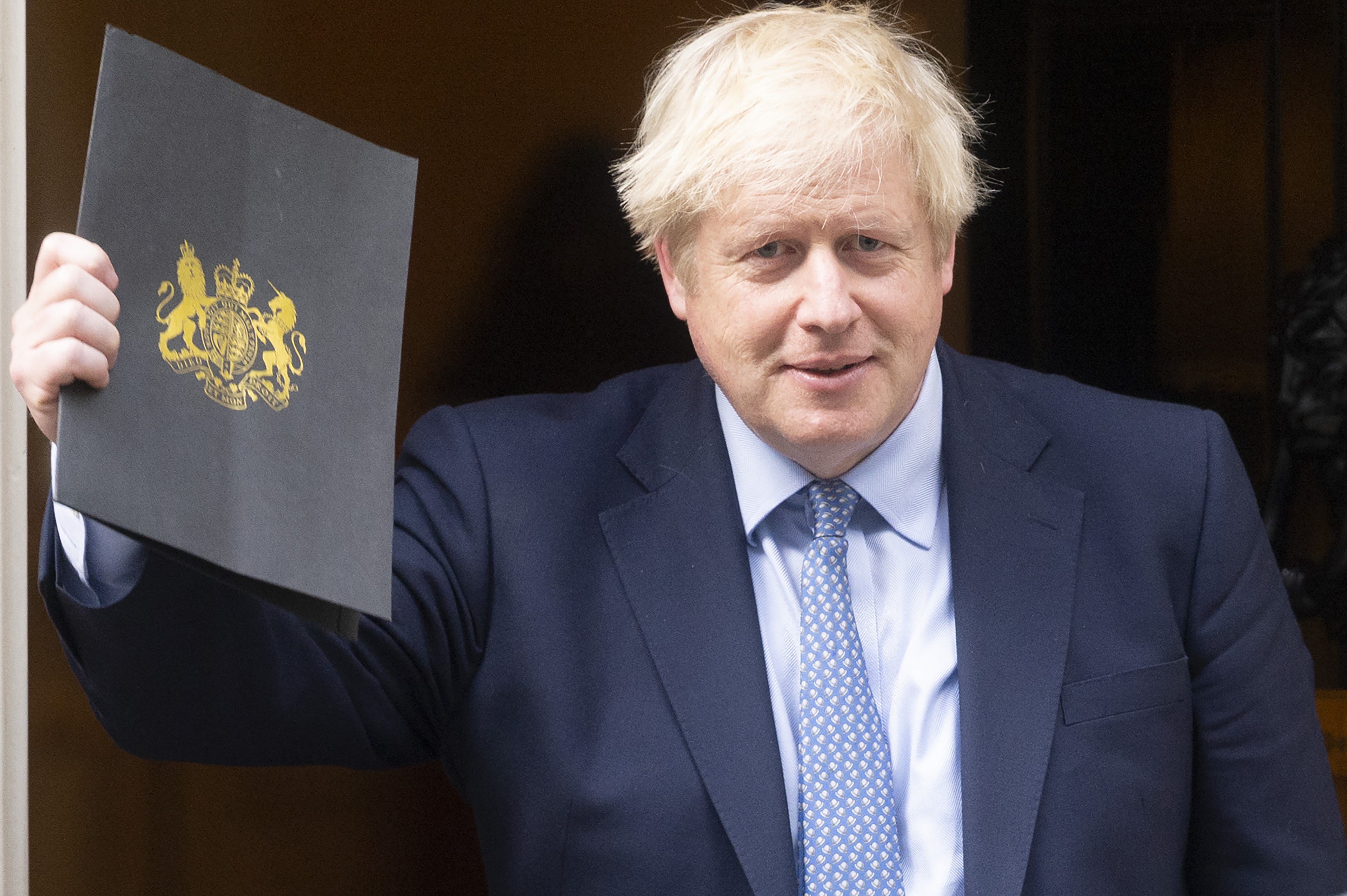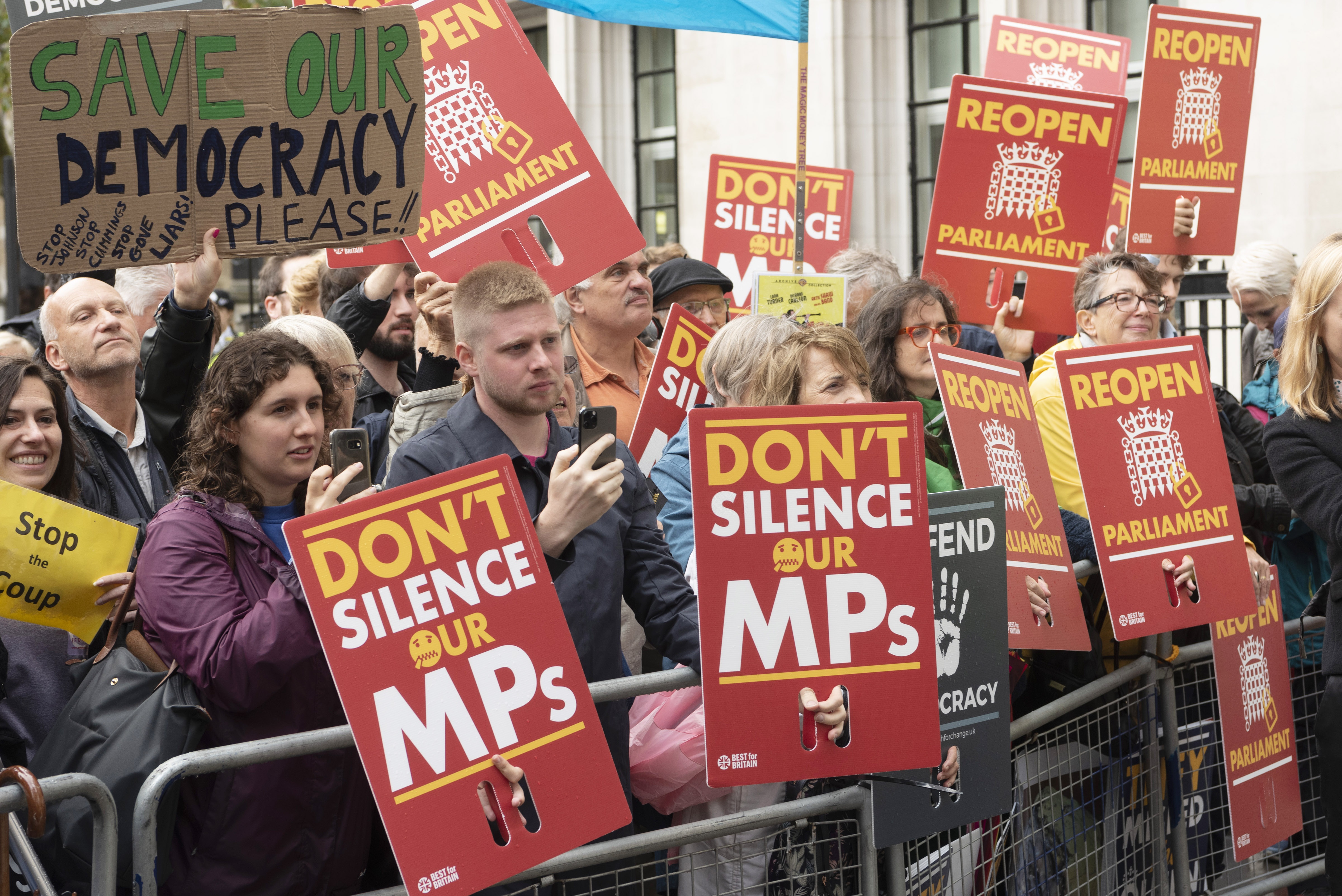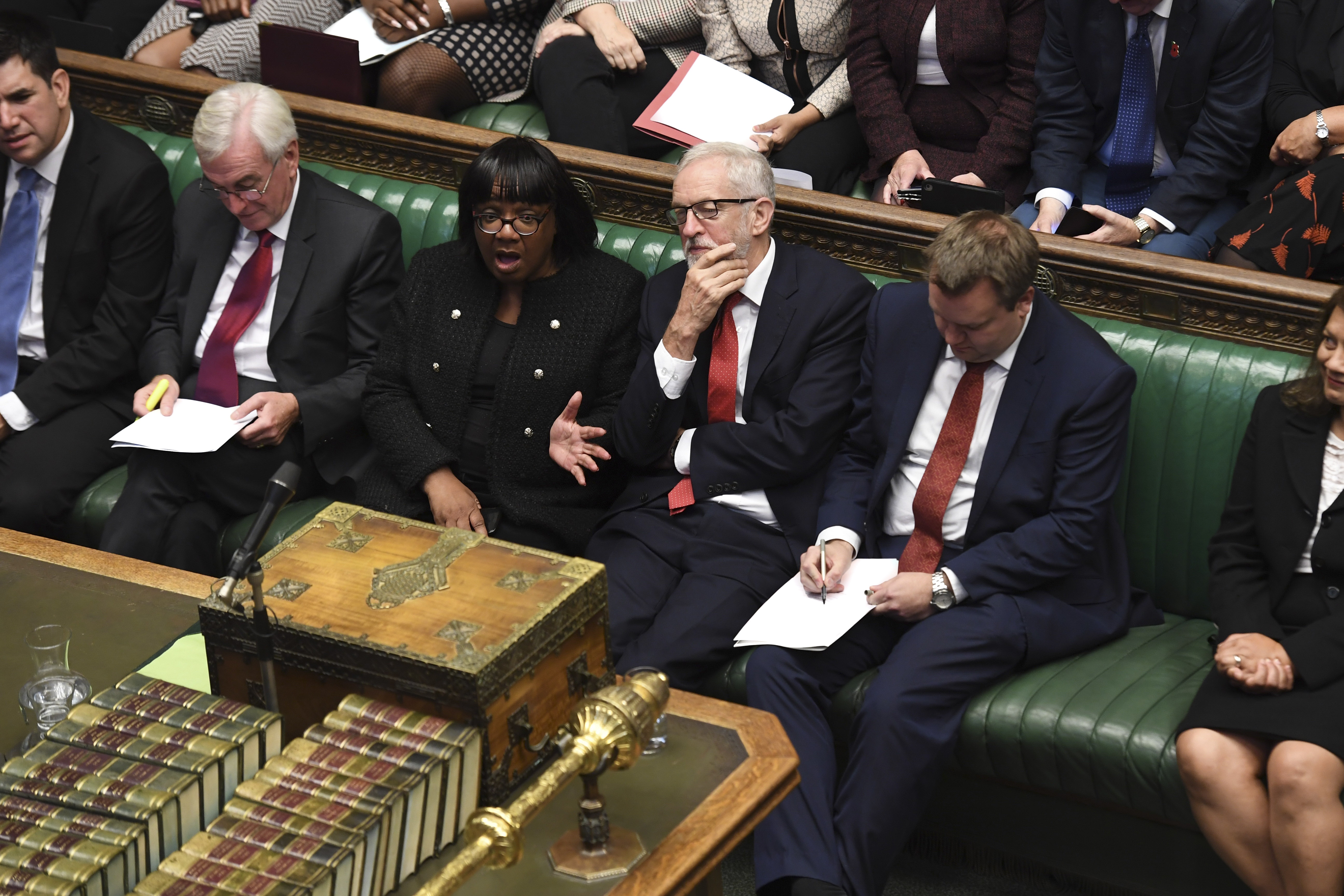Another defeat for Johnson further complicates Brexit
- By Heiko Khoo
 0 Comment(s)
0 Comment(s) Print
Print E-mail China.org.cn, September 27, 2019
E-mail China.org.cn, September 27, 2019

Britain's Supreme Court ruled that Prime Minister Boris Johnson's advice to the Queen to prorogue or suspend parliament was unlawful and invalid.
The unanimous decision by 11 of the country's most respected and experienced judges also serves to delineate and define the power relationship between the legislative, judicial and executive branches of power. In doing so, the court found that the prime minister and the government were breaking constitutional law.
During the court hearings, the government's counsel held that the decision was simply a political one, and so outside the remit of the courts.
In drawing up its conclusions the court referred to case law, practice and precedent. Proroguing parliament is a prerogative power recognized in common law and enforced by the monarch on advice from the prime minister.
The Supreme Court noted that, in the 17th century, clashes between parliament and the monarchy culminated in a civil war. Yet in 1611, the court ruled that "the King hath no prerogative, but that which the law of the land allows him." This shows the limits of prerogative powers are defined by the courts.
Although the 2016 Brexit referendum had no legal force, politicians treated the decision as "politically and democratically binding." Indeed, this certainly continues to represent the strongly-held view of most "Leave" voters.
However, as leaving the EU involves a major constitutional change, the court found that proroguing parliament for five weeks represented an unlawful attempt to limit its ability to hold the government to account in the run up to Brexit, currently scheduled to come into effect on Oct. 31. Nevertheless, the merits or demerits of Brexit were not at issue in the court decision.
The lack of a written constitution means the history of "common law, statutes, conventions and practice" make up what is deemed a constitution in British terms.

The courts intervene to delineate the limits of power of different branches of government to identify and rectify transgressions. The ruling of the court was that, if proroguing of parliament serves to unjustifiably prevent or frustrate the legislative process and the oversight of government, then it is unlawful.
The former Tory Prime Minister Sir John Major presented evidence in court against the government to show that the normal process of prorogation requires only a few days suspension, and certainly nothing like the five weeks that Boris Johnson imposed.
The court ruling restated some of the basic principles of the British way of governance. The system is a representative democracy, where people elect members of parliament. The Government is not directly elected and it depends on the support of the House of Commons in Westminster.
And, "it has no democratic legitimacy other than that." However, whilst the government is accountable to the House of Commons and the House of Lords, the exercise of governance is the role of the executive.
The court held that Prime Minister Johnson had indeed acted to "frustrate or prevent" parliament from carrying out its duty. And it emphasized that parliament had the right to define how Brexit, as a major constitutional change, should occur.
The government's legal representative had argued that a court couldn't overturn parliamentary "proceedings" and that this was enshrined in the Bill of Rights Act of 1688.
In contrast, the court showed that the act of prorogation, whilst taking place in Parliament, is not a "proceeding", as MPs and Lords have no say over the decision, which is imposed on them from outside by Royal Commissioners.
Therefore, it decided the prorogation order signed by the Queen on advice from her ministers was null and void; and it was "as if the Commissioners had walked into Parliament with a blank piece of paper" when they were sent to prorogue it.
So, parliament is now sitting again. The Prime Minister rushed back to London from the U.N. in New York, facing immediate calls from all sides for him to resign. He says the court was wrong but that he will respect its decision. Nevertheless, he and his government continue to promise Brexit on schedule.
Boris Johnson's options are narrowing by the hour. Cornered, he responded to the court decision with a statement in Parliament that lashed out at the opposition for preventing the government from forcing Brexit through, with or without a deal negotiated with the EU.

The PM escalated his attacks on the Labor Party and has been keeping goading its leader Jeremy Corbyn by demanding he call for a vote of no confidence, and this triggers a general election.
The decision by the Labor Party leadership not to call for an election is explicitly designed to prevent Johnson from forcing through a no-deal Brexit on Halloween. However, the delay is being used by Johnson as the basis for claiming the opposition is afraid of an election, and this point certainly hits home with many of the voting public despite being untrue.
Heiko Khoo is a columnist with China.org.cn. For more information please visit:
http://china.org.cn/opinion/heikokhoo.htm
Opinion articles reflect the views of their authors, not necessarily those of China.org.cn.
If you would like to contribute, please contact us at opinion@china.org.cn.





